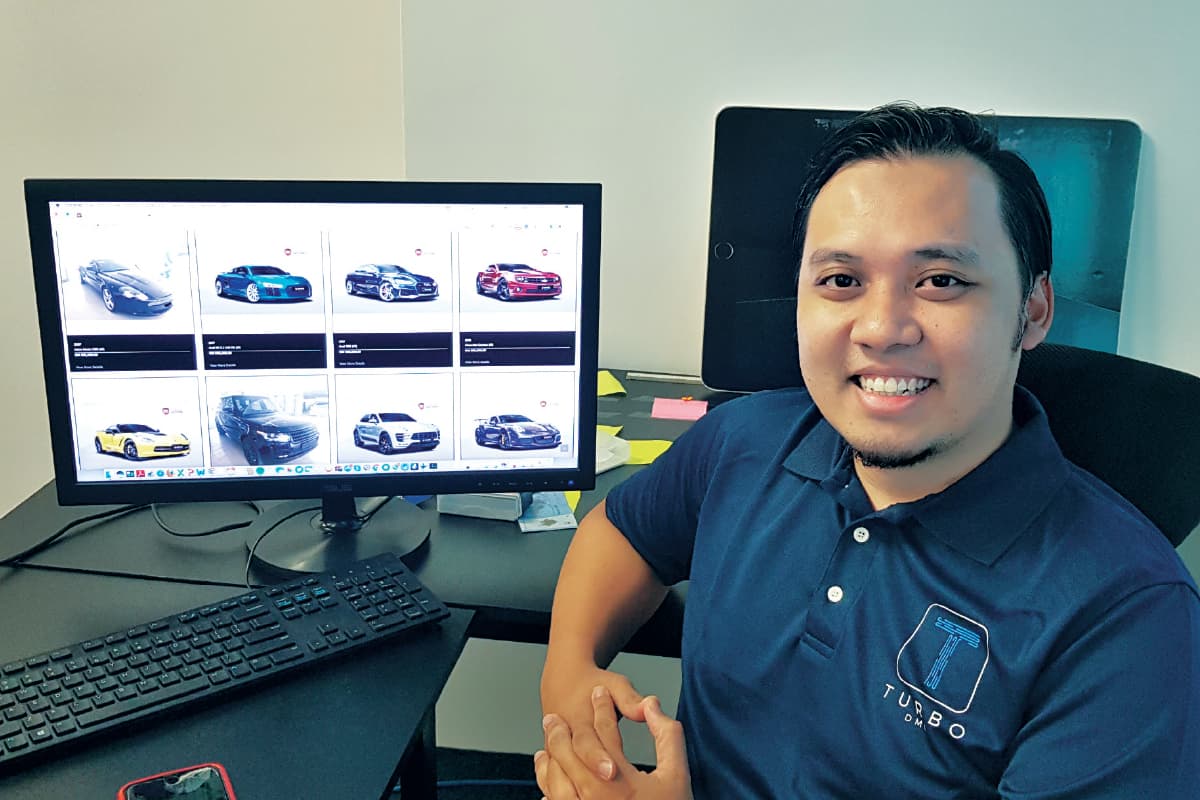
This article first appeared in Digital Edge, The Edge Malaysia Weekly on February 1, 2021 - February 7, 2021
The used-car sales market has seen a lot of digitalisation over the last few years, with the likes of Carsome, MyTukar and MyEG getting into the business in varying degrees.
Auto Craver Tradings Sdn Bhd, founded in 2016 by Adham Fayumi, is one of the newer entrants in this space. The company could be in for an uphill climb, however.
Where companies such as Carsome started out as a customer-to-business (C2B) auction service, which then grew into an online, used-car marketplace with broadly standardised evaluation processes, Adham elected instead to build Turbo DMS, a cloud-based, used-car dealership management software launched in 2019.
“Turbo DMS is a comprehensive cloud-based system that helps dealerships digitally optimise and automate much of their manual tasks, such as inventory management, business documentation and customer management. We are digitalising car dealership infrastructure and processes to help them improve their service efficiencies and achieve higher sales while saving on costs.”
This first layer is an attempt at providing a more basic, arguably entry-level digitalisation service to individual dealerships. But this is just the start, according to Adham.
“One of the most memorable bits of feedback we hear is car dealers telling us they want to look for more ways to increase sales. This is doubly true of inventory that has languished in their showrooms for years. This led us to develop an internal, business-to-business (B2B) marketplace between car dealers and car brokers,” he says.
This is where things could get challenging. The used-car market is fraught for the uninitiated and so-called car brokers are a mainstay of the ecosystem. These are essentially freelance salespeople who seek out buyers and sellers and connect the parties with one another. The brokers tack on a percentage to the final sale price, which they pocket as a commission or finder’s fee of sorts.
Adham explains, “This internal marketplace allows car dealers to cross-trade their inventory with other dealerships. We also recruit brokers to use the platform for their transactions.
“For brokers, this represents instant access to thousands of cars they can sell. For dealers, they now have potentially hundreds or thousands of car brokers who are able to sell their cars.”
Car brokers potentially add a layer of wheeling and dealing that customers (whether individual buyers or other car dealerships) need to undertake before a sale is made.
In addition, while the numbers are not immediately available, car brokers tend to resort to questionable business practices when chasing a sale, especially if the customer is an individual buyer with little visibility or knowledge of the used-car ecosystem.
Social media, and Facebook in particular, host thousands of local fan pages dedicated to car enthusiast communities. For the most part, these pages consist of passionate petrolheads looking to engage with one another.
But every now and then, a user posts a question on the page, informing the group of his intention to purchase a vehicle, whether as a daily driver or to use as a weekend car. Perhaps unsurprisingly, car brokers trawl these pages, looking for these requests. It is not uncommon, for example, for a broker to indirectly make himself out to be the owner of a particular vehicle, and then reach out to the inquiring user on the pretext of wanting to sell his car.
Generally, it is only when the sale is about to be finalised, when the buyer gets to see the documentation, that it comes to light that the name on the documents does not match that of the supposed “owner” who initially contacted the social media user.
In more drastic and rare cases, outright fraud is known to have occurred, something that even Adham acknowledges. “We know of multiple instances of a customer showing up at a dealership, claiming to have placed a booking fee with a broker, who had claimed to represent the dealership. Having transferred funds to the broker, who then absconded, the customer was left to demand a refund of his booking fee from the incredulous dealership.”
For his part, Adham tells Digital Edge that he has built in a comprehensive review mechanism that allows car dealerships to review their transaction experience with specific car brokers. He adds that individual customers will be able to review not only the car broker they deal with but also the car dealership from which the vehicle was sourced by the broker.
It is uncertain, however, just how an individual customer would be able to do so at this juncture. At press time, there did not appear to be a public-facing platform that individual buyers could visit to look up high-performing brokers or dealers. Having said that, this lack of availability makes sense on some level, considering that Adham specifically refers to Turbo DMS as an internal marketplace (as opposed to public platforms such as Carsome).
From a strictly business standpoint, however, it is not immediately certain how this internal marketplace will drum up the necessary traffic for Turbo DMS to become a viable search option for individual buyers looking to purchase used vehicles.
Adham says that for now, both car brokers and dealerships, if properly vetted, are providing both each other and the broader used-car buying market with sufficient value via the Turbo DMS internal marketplace. He cites Auto Craver’s October 2020 cash-flow breakeven as evidence of the platform’s viability. He is looking to hit RM4 million in revenue in 2021.
Save by subscribing to us for your print and/or digital copy.
P/S: The Edge is also available on Apple's AppStore and Androids' Google Play.
